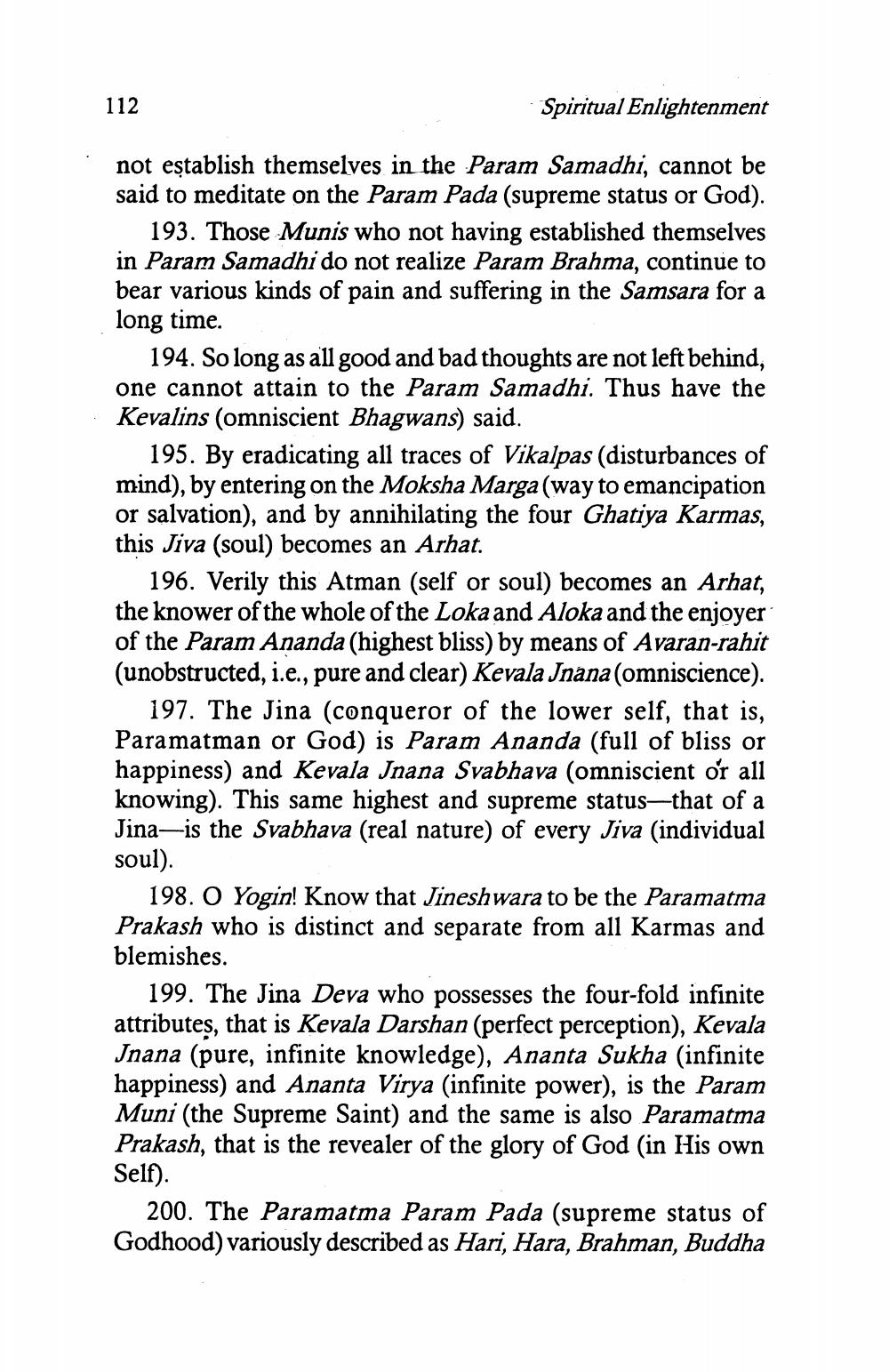________________
112
Spiritual Enlightenment
not establish themselves in the Param Samadhi, cannot be said to meditate on the Param Pada (supreme status or God).
193. Those Munis who not having established themselves in Param Samadhi do not realize Param Brahma, continue to bear various kinds of pain and suffering in the Samsara for a long time.
194. So long as all good and bad thoughts are not left behind, one cannot attain to the Param Samadhi. Thus have the Kevalins (omniscient Bhagwans) said.
195. By eradicating all traces of Vikalpas (disturbances of mind), by entering on the Moksha Marga (way to emancipation or salvation), and by annihilating the four Ghatiya Karmas, this Jiva (soul) becomes an Arhat.
196. Verily this Atman (self or soul) becomes an Arhat, the knower of the whole of the Loka and Aloka and the enjoyer of the Param Ananda (highest bliss) by means of Avaran-rahit (unobstructed, i.e., pure and clear) Kevala Jnana(omniscience).
197. The Jina (conqueror of the lower self, that is, Paramatman or God) is Param Ananda (full of bliss or happiness) and Kevala Jnana Svabhava (omniscient or all knowing). This same highest and supreme status—that of a Jina-is the Svabhava (real nature) of every Jiva (individual soul).
198. O Yogin! Know that Jineshwara to be the Paramatma Prakash who is distinct and separate from all Karmas and blemishes.
199. The Jina Deva who possesses the four-fold infinite attributes, that is Kevala Darshan (perfect perception), Kevala Jnana (pure, infinite knowledge), Ananta Sukha (infinite happiness) and Ananta Virya (infinite power), is the Param Muni (the Supreme Saint) and the same is also Paramatma Prakash, that is the revealer of the glory of God (in His own Self).
200. The Paramatma Param Pada (supreme status of Godhood) variously described as Hari, Hara, Brahman, Buddha




